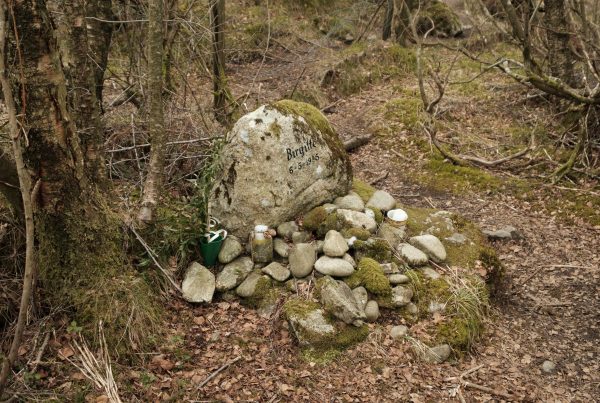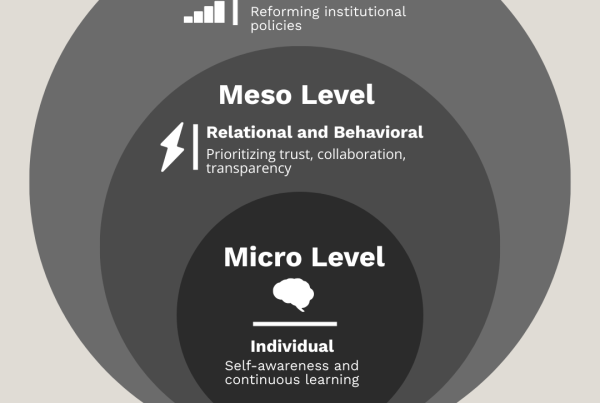Read how the transformation in sexual crimes victim support in Schleswig-Holstein police was carried out through:
- Innovative Victim Interview Support: To transform, the team working with sexual violence victims were emphasising victim-centric workflows, implemented audio-visual recorded interviews to minimise trauma, and have been pioneering specialised training for officers handling sexual crimes.
- Technology and Legal Transformation: A key part of the transformation was the implementation of court-proof interview tools, alignment with legal changes like §58a StPO, and future vision for centralised data management to ensure more efficient and fair judicial procedures.
- Leading Example for Germany: Schleswig-Holstein’s combination of dedicated civil servants, innovative technology, and legal compliance sets a benchmark for victim protection and has the potential to influence the entire German judicial system in supporting victims of sexual offenses.
Redefining Victim Interviewing: Challenges and Achievements
With a palpable dedication to the victims, the team in Schleswig-Holstein embarked on a mission.
Their primary objective?
To ensure that the entire process, from initial police involvement to the final decision of the judge, remained centered on the victims. They sought to improve the collection of evidence, streamline the process and eliminate the technological challenges.
What they achieved in Schleswig-Holstein was nothing short of revolutionary. It all began over 25 years ago with the audio-documented investigative interview. Today such interviews are recorded audio-visually everywhere. They devised an approach built on international best practices that both protected victims and improved evidence collection through interviewing methodology. This approach has proven itself and can serve as an example for other police forces in the Federal Republic of Germany to improve the care of victims during the interviewing process.
Central to this new approach was a major shift in interviewing techniques. Recording interviews and employing investigative interviewing methodologies have been game-changers, reducing the number of times victims have to recount their trauma.
Their pursuit of technological solutions led the police of Schleswig-Holstein to Davidhorn in 2010. The challenge? Finding a technical way of documenting court-proof interviews in order to prevent multiple interviews by the police.
This transformation wasn’t initially triggered by a change in law or official directive. Instead, it was the result of individuals within the police force driven by passion, determination, and a desire to prioritise the victim’s perspective. Inspired by the Danish police and their practices, they wanted to bring the same standards to Schleswig-Holstein, especially in handling sexual crimes. The goal? Modify the workflows to give investigations the most effective start. A good initial interview is the key to subsequent investigations and measures.
The collaboration with Davidhorn started with just three test recording sets. This number has increased over the years and is now available for all sex crime teams in the 26 criminal police departments in Schleswig-Holstein.
A legal change in 2019, affecting interviewing protocols for suspected juveniles and suspects in homicide cases, led to expanding of the system and the acquisition of more interview kits. Now, Schleswig-Holstein boasts around 60 of these tools. For the team that primarily works with sexual crimes, portable solutions have proven invaluable.
However, the Schleswig-Holstein police envisions the future with a centralized server solution that could eliminate the need to send interview CDs across the country – a process that is both time-consuming and prone to errors. These tech solutions could save time and human resources in the future by offering an automatic transcription function “Speech to Text” and AI-supported summaries of interviews.
Shaping the New Paradigm: Victim-Centric Workflows
The new approach is anchored in a pivotal first step: conducting a well-documented interview. The intent? To make a video interview available to those involved in the process, which saves the victim from having to be interviewed again in court so that they don’t have to relive the trauma. A practice that since 2019 has been a legal requirement in Germany.
The practice proved that such an interview, which avoids a main hearing, makes sense at the end of the police measures when all facts are determined and established. Recorded initial police interviews are therefore still being carried out.
In this respect, Schleswig-Holstein stands out, emerging as the only region in Germany that operates with such a degree of responsibility. With approximately 1200 interviews conducted annually, they’re far ahead of the curve when compared to all other federal states.




